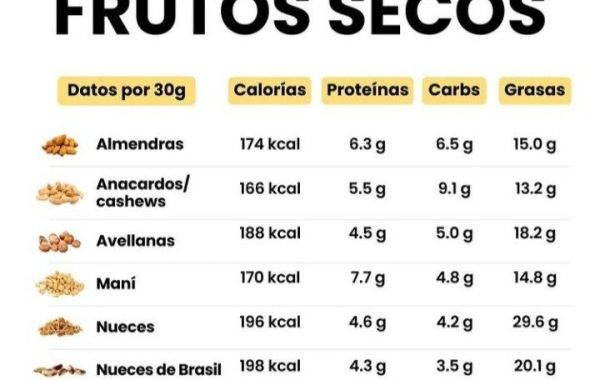When working as an SEO, you need to improve your knowledge of various terms and tools intended to help you offer quality content writing services. Since the algorithms influencing ranking change by the hour, it’s sometimes hard to keep up with them and immediately adjust the content to meet the new standards. Thankfully, some aspects can be monitored in the long term, and you have a handful of assets to help you make significant changes to benefit the websites you manage. Topic clusters are one of the helpful tools that you can use to make your SEO program more efficient. They help you add value to your digital marketing and monitor the quality of your services.
A productive strategy can help improve your SEO skills. How? Simple: using the clusters, a website benefits from contextual support and a solid internal linking structure. And the more qualitative and valuable your content is, the more topical authority you can build. These are strongly connected to your ranking and visibility towards web users. Please keep reading to discover more about topic clusters and how they influence topic authority, namely your position on search engines.
Why Are Topic Clusters Important?
Google ranks sites that prove to be valuable and user-friendly. Creating SEO topic clusters will place your content into an effective site structure. Also, your users and, implicitly, Google will find related content more quickly if your site links from or to a pillar page.
Personalized search makes keyword rankings more comprehensive, as Google caters search results to the needs of each user. Thanks to the continuous change of algorithms, it’s easier for the engine to understand when multiple searches are related to the same thing. Simply put, content may be relevant for several related keywords. Because Google aims to offer users valuable and accurate search results, it’s more helpful for your website to create content around a topic than particular keywords.
This means that generating content on a given topic is more effective than creating content targeted on a single search. Your topic authority will increase if you extend your content to a more general subject, and you will outperform sites that offer fewer and less authoritative content. The best writing services that can add value to your content must focus on the big picture or, in this case, big topics.
The most apparent advantages brought by content clusters are:
They maintain users’ interest: if a user finds interesting things on your website, they will stay longer and won’t keep looking elsewhere. Your website will be on their checklist next time they look for something. If one of your pages ranks well and you create content around a topic, similar content on your website will also improve search rankings.
They help increase traffic: If your content is precise and well-written, it will attract new users who will stick around on your website. Hence, the feedback will be positive, and you will enjoy more traffic and conversions.
How Do Topic Clusters Work?
Topic clusters are basically strategic internal links that offer the opportunity to become more visible to web users. They consist of groups of similar content that cover a broader subject area and provide contextual support for other pages. Using internal links, clusters create a framework that helps users find your content based on their query. Overall, topic clusters cover a specific subject by combining the content on various pages. Here is how they work:
Topical Authority
The more user-friendly, concise, and credible your content is, the more visible you will become. Search engines will categorize you as a trustworthy source and a subject matter expert if you deliver quality content that is helpful for users.
Semantic Search
This tactic refers to how search engines interpret a query instead of taking it literally. The search results appear after thoroughly analyzing word arrangement and determination of what each search query is about.
Content Pillars
The term refers to an essential piece of content that is usually divided into several sections that eventually lead to the main idea of the content.
Topic Entities and Search Queries
A topic entity is a word or a phrase that can be entered into a search and will be easily distinguishable and uniquely identified. The search query is the actual question typed into the search bar, often including or being a keyword.
Keywords
A keyword is a particular word that defines what a web page is about. Each website revolves around a core idea, which is the keyword. Users type various phrases when they search for something, and even if they don’t use the exact same words, the search engine understands the intended meaning and points out a keyword.
Interlinking
This tactic refers to when a hyperlink on a webpage redirects to another page on the same site. It’s an intelligent move to keep users on your site as they navigate from one page to another.
How to Create Topic Clusters to Improve Topic Authority
Choose a Core Topic
The first step is to choose a subject or a topic to create your content cluster around—Analyze the topics related to your page and decide which ones would be relevant for you. See which topics have worked in the past and which ones have brought negative feedback. Don’t repeat the same content you already have on your site, but create a new one that will gain the interest of your target audience. Also, analyze your competitors and see what their cluster topics are. The topic of your choice should be extensive enough to allow you to create various pieces of content but not too extensive so that the content will become messy and unfocused.
Perform Keyword Research
Quality writing services that improve web content involve keyword research. Target keywords are the keywords you want to rank for, the ones that are most often used in search queries. Once you determine the most common words or phrases users include in their searches, you will manage to create comprehensive content that will be valuable and helpful. Select a main keyword you want your page to rank for and include it in the title, the Meta description, the URL, and the first paragraph. Secondary keywords must be used naturally throughout the content to avoid forcing their introduction.
Create Quality Content
After planning your topic cluster, it’s time to start writing quality content for your target audience and not for search engines. Write valuable information, be clear and precise, see what your main competitors are writing about and do it better. Everything you write must be straightforward to digest by users, with short and simple sentences that can be easily assimilated. Internal links will be of great help for users to navigate around your website and remain on it.
Monitor Your Results and Keep Building Authority
Over time, keep track of your performance and see how topic clusters work to your benefit. Expand the most rewarding ones with new content and fix the low-performing clusters to keep them from negatively impacting your ranking. If you adapt your strategy ahead, you will manage to generate organic traffic.








